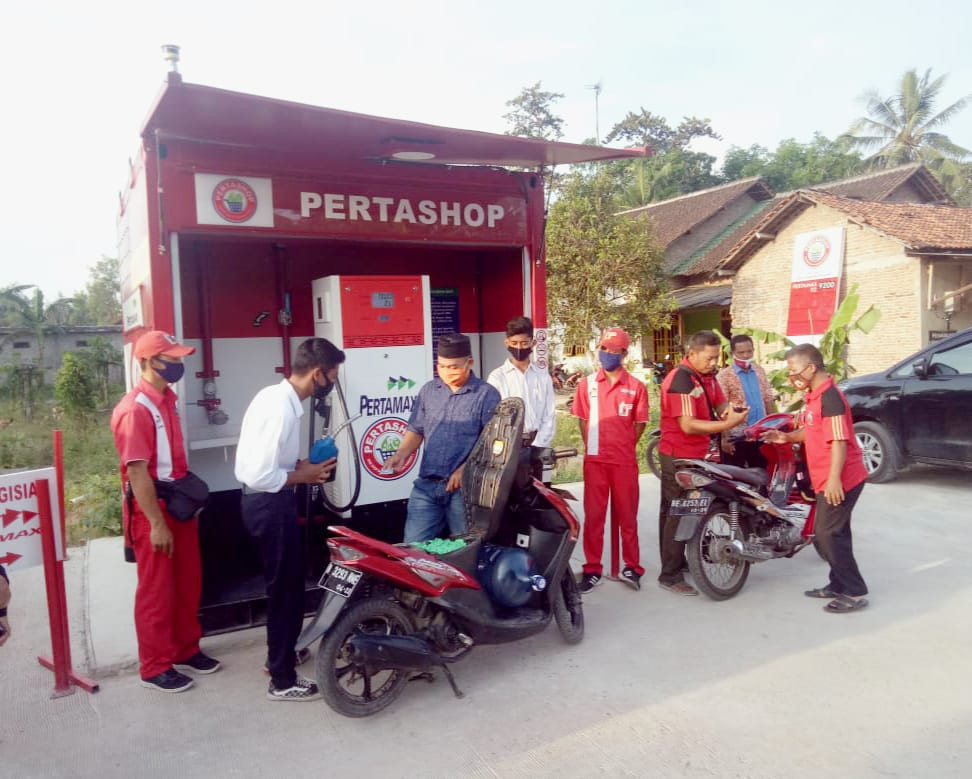Popular Reads
Top Results
Can't find what you're looking for?
View all search resultsPopular Reads
Top Results
Can't find what you're looking for?
View all search resultsPertamina defers phasing out Premium brand despite clean fuel goal
Change text size
Gift Premium Articles
to Anyone
S
tate-owned oil giant Pertamina expects to continue to sell its least environmentally friendly gasoline brand, Premium, until at least 2024, despite its initial target of completely phasing out the brand two years ago to meet its emissions target.
Premium gasoline is the cheapest gasoline brand sold by the oil firm, but has the highest emissions levels that fall within the outdated Euro 2 fuel standard.
Without a promise to drop the Premium brand, Pertamina’s fuel distribution subsidiary, PT Pertamina Patra Niaga, expects to reduce Premium sales by 42 percent to 13,800 kiloliters (kL) per day on average by 2024, claiming that this would be achieved through its marketing strategies.
The company plans for its Pertalite and Pertamax-brand gasolines, its second- and third-cheapest brands, to replace the lost Premium sales, according to Patra Niaga chief executive Mas'ud Khamid.
“Without any regulatory change, and only relying on marketing, Premium sales will be half of Pertamax sales [by 2024],” Mas'ud said on Monday.
Pertamina’s projection reflects the company’s struggle to phase out pollutive fuels, a task that should have been completed in 2018, as stipulated by Environment and Forestry Ministry regulation No. 20/2017 on motor vehicle emissions limits.
Indonesia is among only eight countries worldwide that still sell such low-grade gasoline as Premium.
The government and House of Representatives have defended the sale of the cheap gasoline over the years, regarding it as necessary assistance for Indonesia’s poorest and have launched digitalization programs to ensure the fuel only goes to the poor.
Mas’ud said that the company was not likely to push the promotion of Pertamax Turbo – the company’s priciest fuel brand – despite the plan. Pertamax Turbo is seen by experts as the only gasoline brand that complies with the environment ministry’s regulation.
He argued that most Indonesians’ buying power was between Rp 7,000 (48 US cents) and Rp 8,000 per liter of gasoline.
“If we were to slap on an Rp 10,000 price tag, that would feel rather heavy,” he said. “This is why we will jump from Premium to Pertalite then to Pertamax.”
Pertamina is also limited by a lack of Pertamax Turbo-capable refineries in Indonesia. The company planned to develop six such refineries by 2026 but two have been put on hold.
Read also: Despite looming deadline, Pertamina’s clean fuel goals remain distant
Mas’ud said Pertamina would promote Pertalite usage by expanding its Langit Biru (Blue Sky) promotion across Java and Sumatra, the country’s two most populated islands.
The program, first launched in Bali in July, sees Pertalite sold at a 16 percent discount of Rp 6,450 per liter exclusively for taxis, motorcycles and commercial minivans.
The oil and gas firm is also expanding its Pertamax distribution network. The company plans to sell the brand at all 5,385 of its gas stations by this year. Currently, 531 stations do not sell Pertamax.
He added that Pertamina would expand its Pertamax-only Pertashop outlets “to every village”. The company currently operates 692 such outlets with plans for 4,558 by year-end.
Meanwhile, experts are still pushing for the phase-out of the Premium brand, while criticizing Pertamina for not going far enough to reach the target.
“This [switch] is a move that has been long overdue,” said energy policy analyst Anissa Suharsono of the International Institute for Sustainable Development (IISD) on Wednesday. “Ending sales of Premium fuel is a logical move for the company.”
Apart from being pollutive, the subsidized Premium brand also strains Pertamina’s finances and the government’s budget, she noted.
A case in point, the government, as of June, owed Pertamina Rp 96.5 trillion in compensation for three years’ worth of gasoline and diesel subsidies.
Read also: Govt owes Pertamina Rp96.5t for three years of fuel subsidies
“[The switch to Pertalite] is pointless because Pertalite is not a clean fuel option, neither is Pertamax,” said Ahmad “Puput” Safrudin of the Committee for the Phasing Out of Leaded Fuel (KPBB) on Wednesday.
Energy economist Alloysius Joko Purwanto of Economic Research Institute for ASEAN and East Asia (ERIA) echoed Puput’s statement.
“The improvement in air quality is not significant compared with the subsidy costs paid by Pertamina and the government,” he said.










